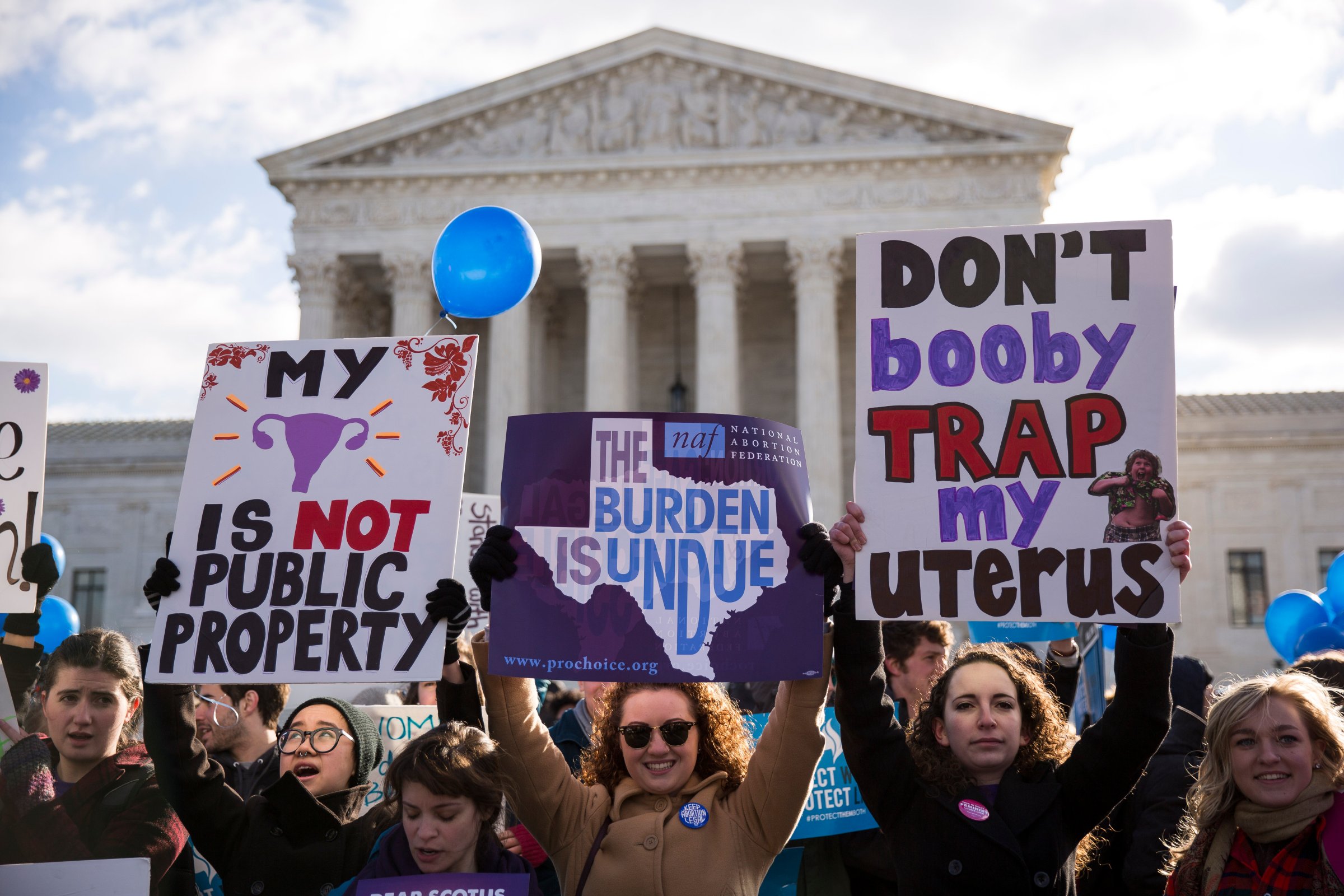
The Supreme Court on Friday temporarily blocked the enforcement of a Louisiana abortion restriction that would have left the state with only one doctor that performs abortions, just days after it heard a challenge to a similar law in Texas.
In a 7-1 vote, the Court temporarily blocked the enforcement of the law that would require Louisiana doctors who perform abortions to get admitting privileges at local hospitals, a restriction that would leave only one working doctor in the state able to perform the procedure. The law was first blocked by a federal judge, who cited “minimal” medical benefits of such a restriction, and then upheld by the 5th Circuit Court of Appeals.
The Supreme Court recently heard a challenge to similar laws in Texas, and a ruling in that case could set a precedent for the future of abortion restrictions in other states. The Court also temporarily blocked the Texas law in question from going into effect, pending the legal outcome of the challenges.
More than 282 abortion restrictions have been enacted on the state level since 2008, meaning more than one quarter of all abortion restrictions since Roe v Wade have been enacted in the last five years, according to the Guttmacher Institute.
Justice Clarence Thomas was the lone dissenter in deciding whether to temporarily block the Louisiana law. It’s fair to assume that the late Justice Scalia, who was staunchly anti-abortion, would likely have dissented as well.
The Texas case, Whole Women’s Health vs Hellerstedt, was argued on Wednesday in front of an 8-person Supreme Court. Lawyers for the plaintiffs argued that Texas’s abortion restrictions unfairly targeted abortion clinics and placed an undue burden on women exercising their constitutional right to an abortion. Lawyers for the state argued that Texas’s laws protected women’s health. Justice Kennedy is likely to be the swing vote in the case: if he rules for the plaintiff and votes to strike down the law, it will likely set a precedent for similar abortion restrictions in other states.
More Must-Reads from TIME
- Cybersecurity Experts Are Sounding the Alarm on DOGE
- Meet the 2025 Women of the Year
- The Harsh Truth About Disability Inclusion
- Why Do More Young Adults Have Cancer?
- Colman Domingo Leads With Radical Love
- How to Get Better at Doing Things Alone
- Michelle Zauner Stares Down the Darkness
Write to Charlotte Alter at charlotte.alter@time.com